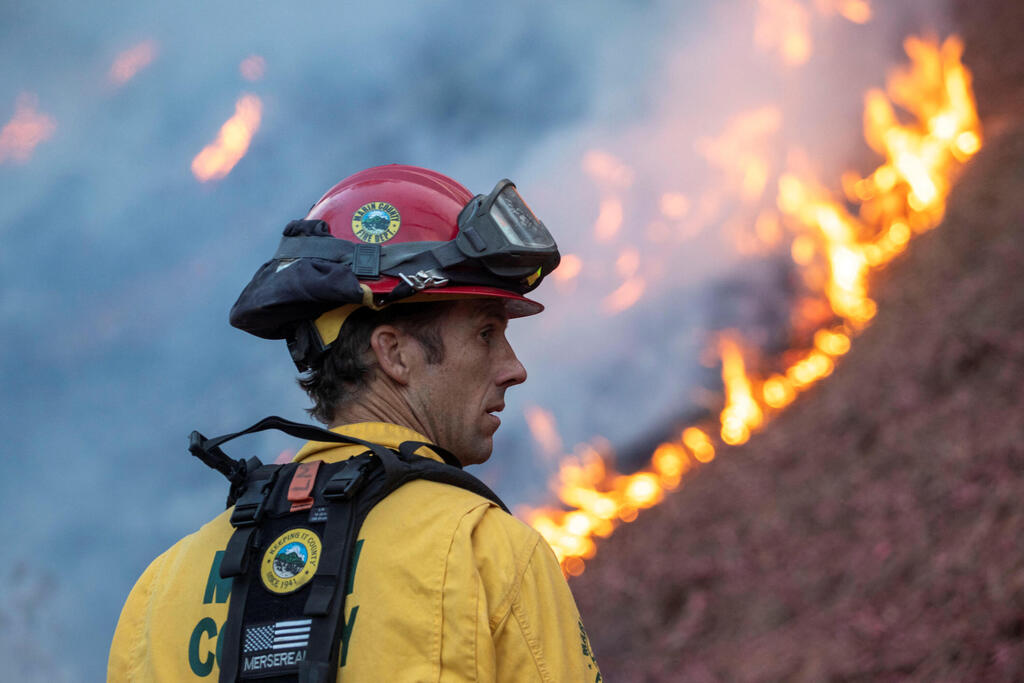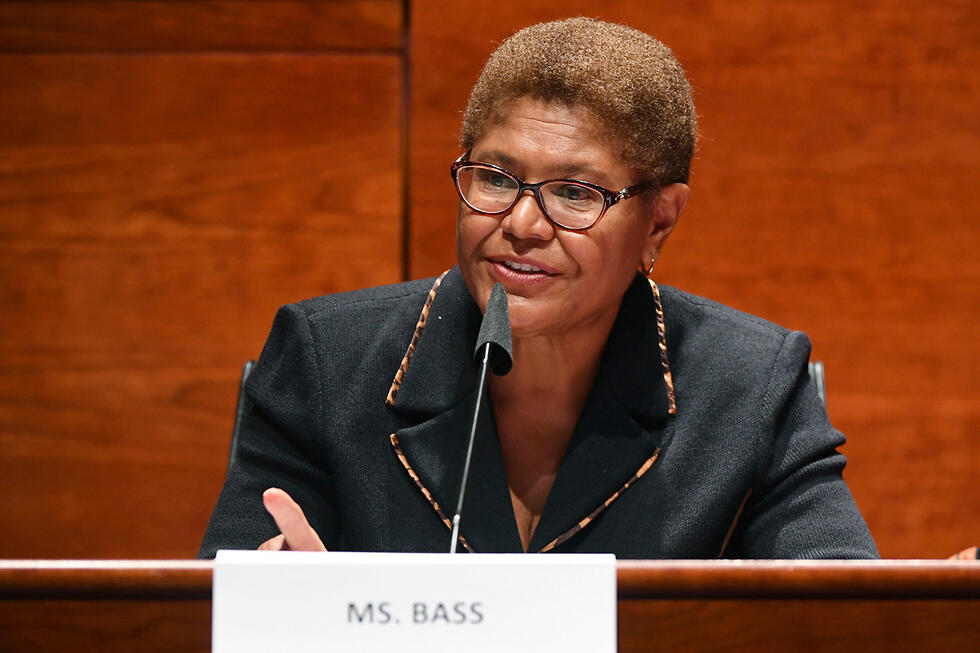On Thursday afternoon, massive plumes of smoke rose over the hills opposite my home, growing into monstrous clouds by evening. The Watch Duty app buzzed incessantly, warning about the fire’s relentless march toward us, crossing the hills and threatening the residential neighborhoods of Encino, Tarzana and Sherman Oaks.
I try to avoid the nerve-wracking news, yet it’s impossible to resist checking the app, which provides a real-time glimpse of the fire’s terrifying advance. As of now, only 11% of the Pacific Palisades fire has been contained. The winds, expected to intensify, loom as a dangerous force, threatening to further spread the blaze.
Destruction in LA
(Video: Reuters)
On Friday night, I lay in bed, staring at the fiery red skies and the eerie yellow glow of the flames in the distance. A helicopter circled overhead, valiantly dropping water to combat the inferno. I fell asleep, clinging to the hope that by morning, firefighters would gain some control over the advancing blaze.
The mood in Los Angeles is one of mounting frustration. Everyone points fingers at the same culprits: Mayor Karen Bass and Governor Gavin Newsom. Since taking office two years ago, Bass slashed $118 million from the firefighting budget. Newsom, for his part, reduced funding for wildfire response and forest resilience by over $100 million. In a state infamous for its annual wildfire disasters, such cuts feel utterly reckless.
My cousin, who spent nearly 40 years living in Pacific Palisades, lost her home. Another cousin lost hers in Malibu. Not everyone in these neighborhoods is a millionaire. Many lived there long before the areas became havens for the wealthy. John Carr, 65, stayed behind to save his house in Pacific Palisades, built by his parents in 1960. “Some things in life are worth fighting for,” he said. “If I lose this house, I won’t be able to afford to build another.”
<< Get the Ynetnews app on your smartphone: Google Play: https://bit.ly/4eJ37pE | Apple App Store: https://bit.ly/3ZL7iNv >>
Thanks to Carr’s bravery, his house and the two homes next door were spared. As I try to imagine whether I would have the courage to stay and fight for my own home if the fires came closer, I can only hope I never have to make that choice. On Saturday morning, I woke up to a massive gray cloud overhead—but thankfully, the flames had not yet reached us.
Six months ago, many insurance companies in Los Angeles canceled wildfire coverage, deeming it too risky. This left numerous homeowners without insurance, while others are uncertain how much their policies will actually cover. Either way, it won’t be 100%. This uncertainty is fueling widespread anxiety, and some residents have chosen to stay behind to defend their homes.
The most destructive wildfire in Los Angeles history has already destroyed over 12,000 buildings and claimed at least 16 lives. Winds, which briefly weakened, threaten to pick up again. Meanwhile, critical failures in emergency infrastructure have been exposed, prompting the governor to order an independent investigation: “The fire hydrants didn’t work.”





